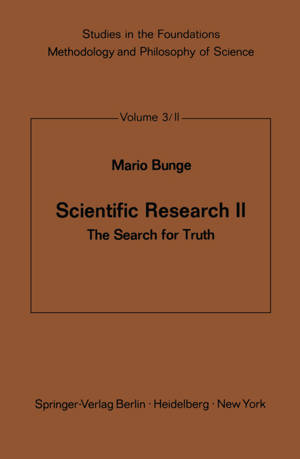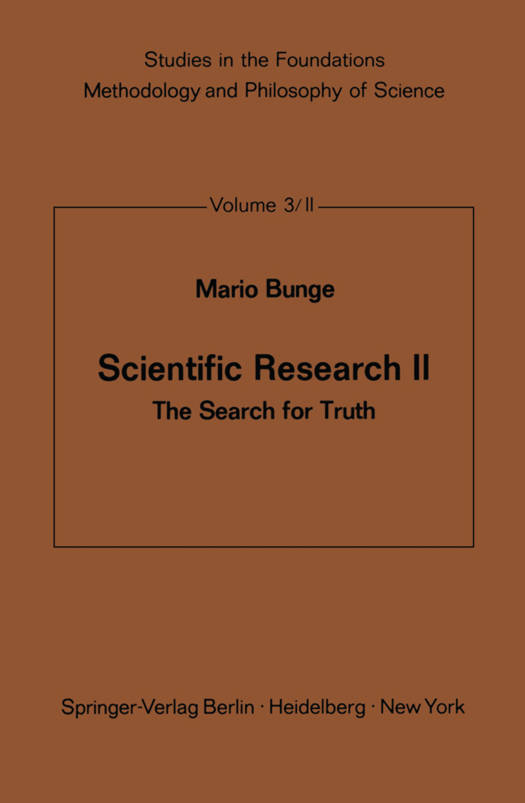
Bedankt voor het vertrouwen het afgelopen jaar! Om jou te bedanken bieden we GRATIS verzending (in België) aan op alles gedurende de hele maand januari.
- Afhalen na 1 uur in een winkel met voorraad
- In januari gratis thuislevering in België
- Ruim aanbod met 7 miljoen producten
Bedankt voor het vertrouwen het afgelopen jaar! Om jou te bedanken bieden we GRATIS verzending (in België) aan op alles gedurende de hele maand januari.
- Afhalen na 1 uur in een winkel met voorraad
- In januari gratis thuislevering in België
- Ruim aanbod met 7 miljoen producten
Zoeken
Omschrijving
This volume is a logical sequel of Volume I, The Search for System: indeed, it concerns the ways theoretical systems are put to work and subjected to test. Yet it can be read independently by anyone familiar with some factual theories, referring back to Volume I when necessary. Special Symbols AS;B the set A is included in the set B AvB the union of the sets A and B AnB the common part of the sets A and B aEB the individual a is in (or belongs to) the set A Card (A) cardinality (numerosity) of the set A AxB Cartesian product of the sets A and B en(A) consequence(s) of the set A of assumptions equals by definition =dt definition Dt- some x (or there is at least one x such that) (3 x) e empirical datum e* translation of e into a semiempirical, semitheoreticallanguage h hypothesis m(r) measured value of the degree r m(;) average (or mean) value of a set of measured values of; P-jT T presupposes P p, q arbitrary (unspecified) propositions (statements) P(x) x has the property P (or x is a P) {xl P(x)} set of the x such that every x is a P pVq p and/or q (inclusive disjunction) p &q p and q (conjunction) p-+q if p, then q (conditional or implication) p if and only if q (biconditional or equivalence) p-q sum over i 2: t theorem, testable consequence
Specificaties
Betrokkenen
- Auteur(s):
- Uitgeverij:
Inhoud
- Aantal bladzijden:
- 374
- Taal:
- Engels
- Reeks:
- Reeksnummer:
- nr. 3
Eigenschappen
- Productcode (EAN):
- 9783642481406
- Verschijningsdatum:
- 9/04/2012
- Uitvoering:
- Paperback
- Formaat:
- Trade paperback (VS)
- Afmetingen:
- 156 mm x 234 mm
- Gewicht:
- 535 g

Alleen bij Standaard Boekhandel
+ 167 punten op je klantenkaart van Standaard Boekhandel
Beoordelingen
We publiceren alleen reviews die voldoen aan de voorwaarden voor reviews. Bekijk onze voorwaarden voor reviews.









